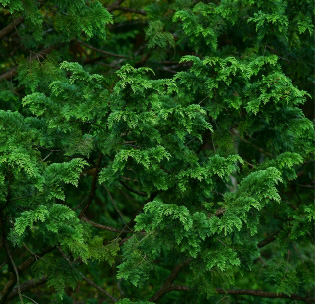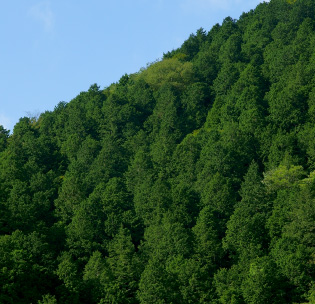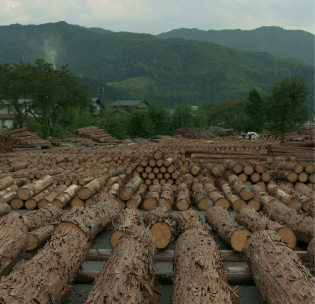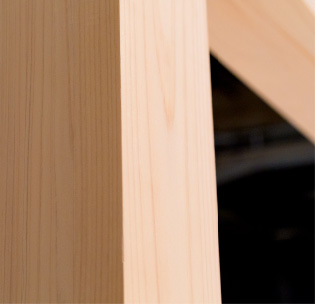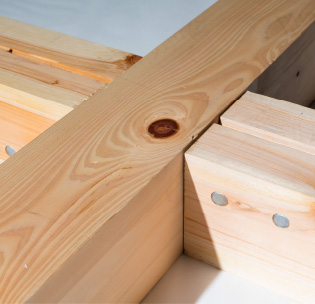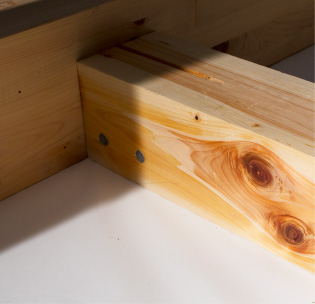Contribution to the environment.
Crisis in the Forests of Japan
Growing the best possible wood is hard work, and part of that work is thinning out trees
when they grow too thickly together. However, a combination of factors threatens forestry in Japan,
including a workforce that is aging and shrinking, cheap imported timber, and price wars.
Woods that have been left untended because of a lack of workers and funding are now a serious problem to contend with.
Woods that have not been thinned out are dark, which prevents undergrowth from forming,
contributing to erosion each time rain falls. This prevents trees from growing properly,
and reduces the forest’s capacity to store and drain water, leading to landslides and other disasters.
The people of Kashimo work so that they will be able to share a future with their beautiful forests.
The Value of Thinned Timber
Larger pieces of timber harvested during the thinning process can be sold on the market.
However, Japanese cypress grows slowly,
and even a tree 40-50 years old will have a diameter of just over five inches (13 cm), and sell for just $4.40 US.
The cost of labor and shipping far exceeds this price.
That means that creating attractive products
using thinned timber is vital to the sustainability of both the forest and the local economy.
Laminated Kashimo Cypress
The solution to the problem of seemingly valueless thinned timber was turning it into laminated wood.
Parts that are unsuitable for the process are discarded,
leaving a product that maintains an exquisite appearance, and mitigates the problems found in pure wood,
like cracking and warping due to humidity levels. This means the product is suitable for environments outside of Japan.
Sections with lovely grain are used for beams,
and parts with knots are placed in areas that don’t stand out, which eliminates waste,
and helps to ensure that lovely forests remain for later generations to admire,
and the hard work that went into raising the trees is not wasted. Iori stands for these principles.






